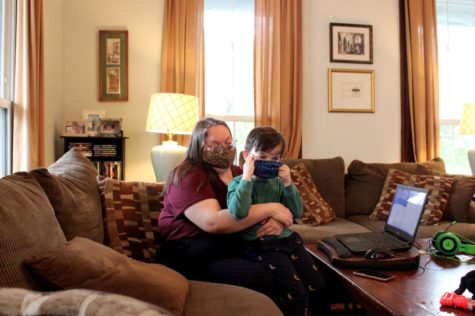Veterinarian Sees Increased Anxieties in Pets as Owners Return to Work

Many pet owners may be coming home from a long day of work to find their pets in a state of panic or anxiety.
After more than a year of working from home, veterinarians and animal parents that are returning to work have become concerned about their animals being left alone after having their owners around for so long.
According to Southwood Animal Hospital’s Veterinarian Dr. Anita Williams, many animals have been brought in with increased anxiety, as they are not used to being alone for long periods of time.
“We are getting more calls for animals who are having separation anxiety, their pets are used to having them there 24/7, and when things change, it upsets them a lot,” Williams said.
Here are a few tips that Williams suggested in order to help dogs and other animals transition into being alone again:
- Try to occupy them and give them something to take their mind off of the fact that they are alone.Turn on a TV set or radio so that the animal can hear voices and not feel like they are alone. Dr. Williams said that most animals love HGTV.
- Give them toys or treats that take a while for them to consume, or use rubber toys that have treats inside for the animals to focus on getting out. For example, Busy Bones and Kongs.
- If you are a higher tech animal parent: Utilize cameras to watch them and talk to them, some of these higher tech cameras can unlock treats for the animals and sometimes even allow the parent to talk to the dog. For example, Furbo cameras.
- In a “worst case scenario” situation, some animals do require medications and tranquilizers for a short amount of time. There are medications for ‘deep rooted’ anxieties , hers or melatonin can be used to naturally calm the animals, and tranquilizers for strong anxiety, to allow the animals to adjust to their new situation, with the initial goal of coming off of those heavy medications.

Williams said that she would like for her patient’s parents to understand that “their brain is just trained to react differently.”
“From an animal’s perspective, it just takes a little bit of patience and work for them to feel safe and calm, it’s not something that is going to change overnight,” she said.
Although many states around the country have seen an increase in animal surrenders to shelters, Williams explained that this really hasn’t been true for Georgia, and the only real increase that they have noticed is with adoptions.
However, she said, “Before you surrender the dogs, if the situation is that dire, call and ask the veterinarian.”
Williams explained that taking your animal in to have a conversation about putting the animal on medication is a much better option than causing the animal more anxiety by putting them back into shelters.















